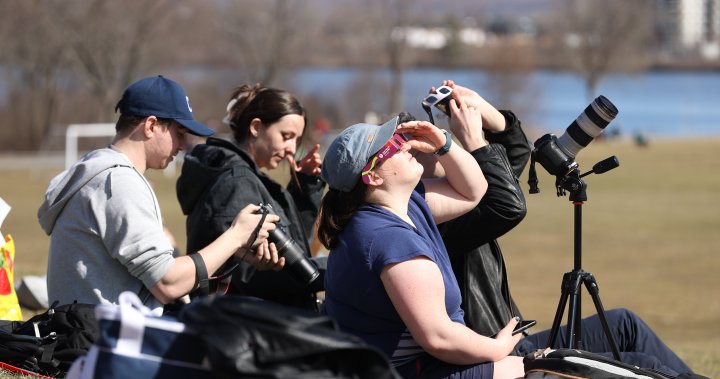The total solar eclipse that occurred in Canada attracted crowds of people, but experts warn that looking directly at the sun without properly certified glasses can lead to potentially untreatable and irreversible eye damage. After the 2017 total solar eclipse, there were roughly 100 patients in the United States and Canada with “eclipse-related retinopathy.” Ophthalmologists urge people to take necessary precautions to avoid putting their vision at risk.
Solar retinopathy is the damage done to the retina from direct exposure to the sun or ultraviolet light. This damage can occur quickly within seconds and may result in distorted vision. Symptoms of solar retinopathy include floaters, flashers, and vision problems that can appear hours, days, or even weeks after the initial exposure. In severe cases, symptoms may be noticed right away, but in milder cases, symptoms may take longer to manifest.
In milder cases of solar retinopathy, symptoms may include a dimming of vision in the centre, changes in colour perception, and a lack of contrast. In more severe cases, symptoms could include eye pain, blurry vision, vision loss, blind spots, and distorted lines. Most patients recover from solar retinopathy within three to six months, but for some, symptoms may persist and become permanent. Experts recommend seeking medical assistance if any concerns about vision arise after viewing the eclipse.
While there is no known treatment for solar retinopathy, experts advise giving the eyes rest and avoiding exposure to additional light. The surface of the eye can be treated if irritated by UV exposure, but damage to the retina is more critical and healing can depend on the body’s natural healing abilities and time. Permanent visual disturbances are a risk for some patients, especially those who have had prolonged and bright exposures to the sun.
It is important for eclipse watchers to be aware of the risks associated with looking at the sun without proper eye protection. Symptoms of solar retinopathy may vary in severity and can include temporary or permanent vision disturbances. It is crucial for individuals who experience any concerns regarding their vision after viewing the eclipse to seek medical assistance promptly. While most cases of solar retinopathy will resolve on their own with time, some patients may experience long-lasting effects. It is recommended to protect the eyes and take precautions to avoid potential eye damage during celestial events like solar eclipses.


